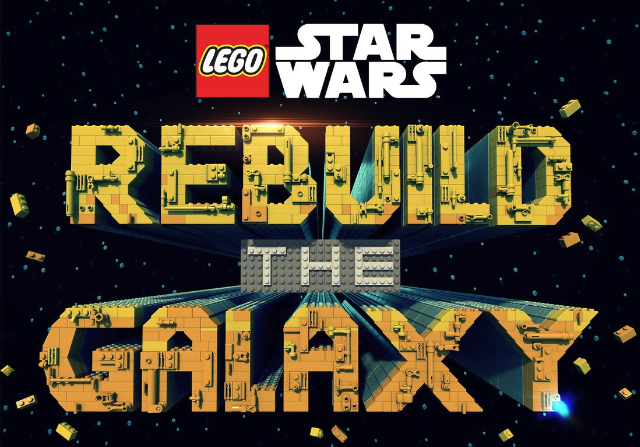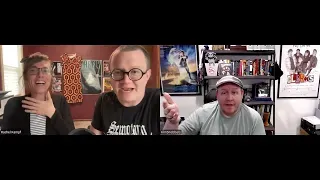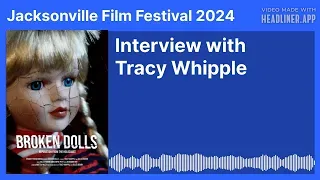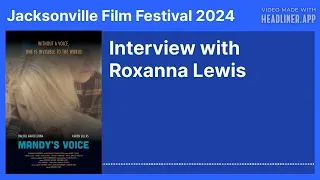Interview with Ondi Timoner
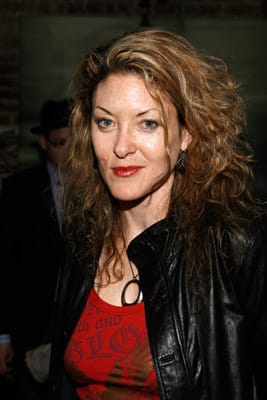
By CineNoir
It is not every day that you get to interview a documentary maker, in the backdrop of the Royal Academy, with the sound of a paint canister being sling-shot across a room and hitting a bare wall, every ten minutes – modern art, right? But even this oddity is probably mild for Ondi Timoner, director of DiG! and, showing at The Times BFI 53rd London Film Festival, We Live in Public.
Cine Noir (CN): The first question is how did you come about this film [because] on one side we have this personal story about Josh Harris, on the other side we have a charting of history of the Internet.
Ondi Timoner (OT): It’s an interesting film, and I think any film that is about a singular person, if that person is not an incredible innovator like Abraham Lincoln or Tesla or Bill Gates or Steve Jobs, there’s no point. It’s not a big film as much as it is about us, the audience, and it’s about something bigger than the person. So I wasn’t interested in making the film till it became about all of us and our lives today.
I sat on this film, [Josh Harris] ask me to make this film back in ‘99 when he was making the bunker. I though it was interesting because he was spending his money in such an extraordinary way. [A] wealthy person usually has houses they buy, cars they buy; he [Josh Harris] would have black coffee and spill it on his shoes in the morning and eat modestly and he put millions of dollars into making this bunker, so I thought that was extraordinary and I though he was autonomic in that way. A lot of us sit back in our lives and watch TV or take things in, what I was seeing was someone going and making things happen, and affecting people’s lives. [F]or those reasons he was an interesting subject, so I accepted the opportunity to shoot, but I wasn’t interested in completing the film until I realised Facebook. That we were sort of living in the bunker and that Josh was Facebook. [When t]hat all came together, I went from not having really searching for what this film was [inaudible] to, like a lightening flash, the clearest vision I ever had for a film, like ‘Oh my God. I have to finish this film right away’. There was 5,000 hours of footage … and we did all that [the editing] in eight months.
It couldn’t happen if I didn’t have this epiphany because with the thesis being all about us, then anything that didn’t point to that was out. [E]verything, it was all about like rapid fire decision-making. Okay, there, that’s in, that’s out, that’s in, that out, that’s in, that’s out, you know. It was pretty exhausting actually.
CN: That’s another question I was going to ask. Were you ever worried at some point that you would lose something, that you might miss something out during those editing processes.
OT: Yeah, but you have to let go of that, but I did have someone dedicated to watching. [Josh Harris] had thirty motion-controlled surveillance cameras in his loft for six months, each one of those is recording to a VHS tape that is eight hours long and then they switch the tape out. So there’s thousands of hours of footage, just from his loft, and I had one person, Sandra Valdivieso her name is, who, bless her, sat with the VHS thing and watched all this footage. I had to leave it to her, I had to say, ‘Here is what I think is interesting, but, literally, if anybody moves in that loft, capture it. If the cat runs to the kitty litter, grab it because I may want to cut to it’. So, she would copy all the VHS stuff onto a format that we could put into a [inaudible].
I remember when she walked into my office one day and she was said, ’I think you should see this’. She such a quiet person, she speaks in the kinda volume you do, you know, like ‘What? What?’, and she walks in and she says, ‘I really think you should see this’ and it’s the fight, with Tanya [Corrin]. She puts [the tape] in the machine, I’m sitting at my desk and watching, and it’s this fight. I thought, ‘Okay, this is dramatic’, you know, it’s a fight, [Josh Harris] and his girlfriend really go at it. And then, what turn me over the top about the scene was when he walks up to the door and she’s leaving him. And standing there, they are both at a stand still, and it’s a pregnant pause. You really don’t know what’s going to happen, I’m thinking to myself, ‘Oh my God, I don’t know what’s going to happen’ and right then the camera switched, because of the kitty litter cam. Boom, the camera switches and I’m like, ’But wait, wait, wait, put the camera back’ and I feel this powerlessness watching this scene. I feel it that I’m a voyeur. I feel how much I’m actually interested in these people and what they’re going to do right now. And I have to leave this scene exactly how the machine’s recorded it. As a director, if I was shooting this dramatic scene, I would never work with the camera way back here, where I cannot even see his face. What a choice! But because it’s a camera, we don’t have a choice, and it adds so much tension to not have to see him right there. So, for all those reasons I think it is absolutely brilliant, so I have to give a lot of credit to the machines.
CN: I think that is another question you sort of answered there. You as a director can only have so much distance from the subject you’re capturing. In this film you’re dependent on hours and hours of tape, but at the same time you go and speak with Josh, and kind of have a relationship. But how do you…
OT: Balance those.
CN: Yeah.
OT: My company is called Interloper films. I am in the room, in the group, but taking notes. So, I’m not just an observer, but I am not a co-participant. I have a pod but I have a [inaudible], you know what I mean. For example, I don’t know if you ever saw my movie DiG! but Anton became a terrible heroine addict during that film. There’s only so much I could do, or that is my job to do. I didn’t put in the film his puddle of piss when he couldn’t make it to the bathroom. I didn’t go to gratuitous levels, I didn’t need to, I could show him nodding off and that was it. [I]f somebody falls on the floor I’m definitely going to help them up, but I also film first when they fall on the floor. It’s my job; I’m there with the camera to capture the event. For example, like when Nancy is thrown out of the event because she scratches the other woman, and her son is with her. It’s traumatic enough that he has been living there, but then to be thrown out two days before the big party, New Year’s Day, was very sad for all of us: I’m a human being. So, I filmed that, but then I also turned the camera off and said goodbye to him and told him that everything would be okay.
As a documentary filmmaker, when I am shooting a film, I’m at the whim of my muse, whatever it is. I was shooting my film Join Us at the cold treatment centre, if they are going to go for twenty-one hours; I’m going to go for twenty-one hours. Wherever they go, I’m going to go and this is the yin. The yang is the editing part where it’s all in my control; I say where I’m going to edit and what I’m going to cut and what I’m going to put in. I get that perspective, and I lose perspective, and I go blind. It’s like this process, [but] that’s where the judgment comes in. I don’t judge while filming. If they felt like I was judging then they wouldn’t open up. I just don’t…
CN: You just go with the flow.
OT: Yeah. I just kind of … yeah, I just kind of appreciate how much people are opening their lives to me. I appreciate their vulnerability and as open as they are, in the moment. In the editing room I become extremely critically and analytical, and it’s all about the story and all about the right focus. I don’t believe in filming in one big block or then editing in one big block because once you are in the editing room, you inevitably have things you need to get to make a seamless story. My goal always is to make a very seamless film where there are no breaks, there is no time you want to go to the fridge … if you take your eyes of it or you’re bored for a minute, a second, then I haven’t done my job.
CN: That definitely comes through in the film, the whole time [I was watching the film] I could not move. The intensity of the mood, the intensity of the subject matter came to a point, when you actually get to the experiment and the pod, the more I watched the film, I thought, ‘Oh my God, this is Facebook live’.
OT: Oh, wow. You got it in one.
CN: If Facebook was a theatre show it would be this.
OT: It is, right, the way we demean ourselves.
CN: Precisely. I wrote in the review about how we have swapped our privacy for fifteen minutes of narcissism.
OT: It is just societal narcissism. If put something out there, then I’ll get all that attention and feedback, and then everybody will validate me. [Y]ou get addicted to that; it’s human nature actually to want to connect and not feel alone.
CN: That’s how I linked it back to Josh’s story. At the end I kind of felt that are we technically all Josh; we’re just a child wanting attention. I had this image of him in front of that 1960s TV, just sat there, being ignored by the adults. Is this what society has come to? We all go to this virtual parent looking for attention. I think your film is quite timely in that way; we’ve all become addicted to Facebook, we go on, we update [our status] on everything we do.
OT: I had no impetus to finish this film. I didn’t finish it, I came following it. When Bush won the election in 2004 I felt like I needed to make Join Us, but I never felt like I need to make [We Live in Public]. When I realised that Facebook was the bunker, the bunker was Facebook, and that Josh, when he goes and does weliveinpublic.com, really shows us how far too far is. It was like, ‘Oh my God. Not only do I have to finish this film, I have to finish it, right now’. It wasn’t so much Sundance, which is the best place to launch a documentary, and I’m biased of course. If you open a Sundance catalogue, the first section is just documentaries. It is the biggest festival in the world, the most premiered festival in North America certainly. Privileging documentaries like that, showcasing it in that way, I think they should be commended for that [because] we rely more and more on festivals for documentaries.
It was January 2009, and the virtual world was taking over and I was like ‘I have to get this out now. This is the warning shoot; this is the [inaudible] of things to come’. Low and behold, three weeks after it premiered at Sundance, Facebook came public on their terms and conditions that they owned all our content. Three week later, Twitter doubled its users that month. People are waking to how insidious the Internet actually is. Everybody knows the Internet is amazing, it’s great and it’s taking over our lives. I think people get that but they don’t realize that they think they are connected, but actually they are disconnected and they don’t realize that. [It is] because they don’t feel like they are disconnected, but when you are in front of your screen, you’re actually not communicating with another human being. So, the next generation can’t read facial expressions as well, and they can’t remember facts because they just Google them. This is an evolutionary process; it is true, [and] it is happening.
It is a fascinating time to be alive and certainly [through this film] I’m more and more familiar with this topic, and I discuss it probably too much, but I think it is unbelievable; it’s going to be pretty incredible, and I think Josh’s right about that. We are herding ourselves in these virtual boxes without realising it. For example, we think we’re being allowed this individuality, we are…
At this point the first of many paint canisters hit the wall in the Anish Kapoor exhibition, concluding just above our heads.
OT: We think that with our profiles we get to be more and more individualized. We get to express our favorite fans, [inaudible] and change our profiles, but these are all pre-sets. [I]n the end of the film, MySpace, Chris DeWolfe, no longer at MySpace but founder of MySpace, he says ‘We have all these pre-sets’, so you can choose your wallpapers and your this and your that, so you think, ‘Oh, it’s my special [page]’, but it’s a pre-set. Josh would argue that we are not going to be more individualized [inaudible] and that we are actually turning into…
CN: Virtual zombies.
OT: Other than that, we actually create these images of ourselves to put out there, avatars. We say it us but we are showing our best moments, whatever we want people to see. I’m going crazy with this film, and thanks to Twitter and Facebook I can put the film out. I can let people know about it and, because of these tools, they can spread the word; without it, I wouldn’t be able to put the film out. But when I Twit out something, I’m generally smiley, everything’s cool [but] people have no idea the hardcore reality of putting this film out, what is really going on. But I’m not going to sit online and complain about it. So, it not real, just like reality TV is not real.
CN: Josh’s character, [for a few moments in the film] I was quite scared of Josh’s character, but [the] fact [is] the way we were obsessed about TV is the way we are obsessed about the Internet. It all ties together in the end, but there is still this question mark about [Josh].
OT: What’s interesting about him, he embodies all this technology, [inaudible] he is a double cautionary tale because if you raise your children on TV and don’t give them physical love they can end up like Josh. He then takes it so far that features his only intimate relationship on cameras and, of course, he constructs his whole life, his whole life [is] a show. [H]e casts his girlfriend; she’s a fake girlfriend. [H]e can’t even bear to admit a real …
CN: I think you get [a sense of that] when he sends a tape to his mother. I thought, I know she wasn’t a great mother, she didn’t have that emotional depth in his life, but she’s your mother; ‘You need to go out there’. At that point, I thought, ‘I don’t know if I should sympathize with you or find you incredibly irritating’ and not have that empathy. I still don’t know because I understand him, but I don’t understand him. I’m on the fence with him. He’s a character.
OT: He is, in real life too. Everybody in his life is also a character, to him. It the first film I could ever make where I didn’t have to really worry about what the subject thought because he’d exploited so many people that I thought, ‘However I care to portray him, that’s fine’. And he said, he actually said, towards the end of the movie, ‘However you want to portray, portray me, as long as you make a great film’. By then he was counting on me to get him out of Ethiopia. [I] feel like somebody who has rescued Voldemont or Darth Vader or something because now he’s back. He’s cruising around Hollywood, making his next project.
CN: For a younger generation who consume the Internet this way, what do you hope the film will do?
OT: I hope [they] will be conscious of what to post and what not to post; what to put out there and to protect yourself from putting really personal photographs on there. Once you put it out there you can’t ever take it back.
Unfortunately, I’m still stuck in the dark ages, and roughly around this point my Dictaphone runs out of tape!
This is going out late due to my poorly self succumbing to the ensuring cold weather descending in London city, but better late that never.

